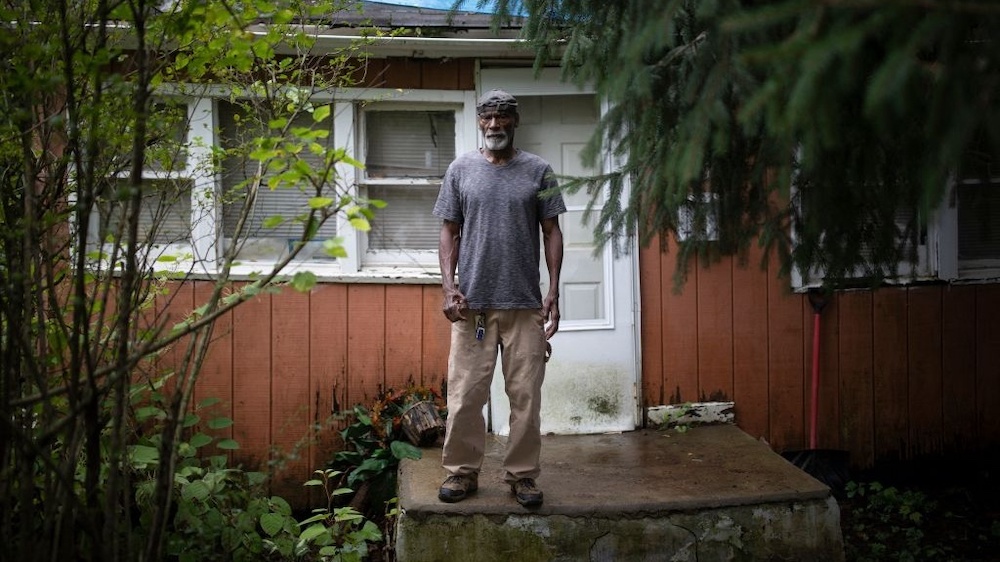If you’re interested in sharing your opinion on any cultural, political or personal topic, create an account here and check out our how-to post to learn more.
Opinions are the writer’s own and not those of Blavity's.
____
We are in the middle of hurricane season. Haiti was just recently hit by both an earthquake and Hurricane Grace, causing thousands of deaths and injuries. And now, as Hurricane Henri made landfall last weekend, thousands are left with flooded homes and without electricity.
Over the years we’ve seen how natural disasters expose geographical segregation, structural racism, generational poverty and a lack of corporate accountability for Black people. We cannot prevent natural disasters from occurring, but we can demand government leaders and corporations to implement and enforce policies and programs that provide emergency relief, such as offering health insurance benefits to those injured, making food accessible for those stuck in the storm, and covering relocation and housing expenses.
Black communities are ignored and abandoned during hurricanes, winter storms and other natural disasters because of the lack of planning around hazard mitigation and underfunding. Just look at the winter storm that occurred in Texas earlier this year — we witnessed thousands of homes in rich neighborhoods receive electricity and the resources needed to survive the storm, while communities of color went without electricity and heat for days. We’ve seen this with Hurricane Katrina, Hurricane Harvey and water pollution in Flint, Michigan. The storms and disasters may differ but the outcome of the lack of assistance remains the same for Black communities across the country. We have every right to demand accountability from corporate leaders that pollute our neighborhoods and policymakers that ignore our rights.
Hurricane Katrina was 16 years ago, and Hurricane Harvey was four years ago, but many families are still trying to find the resources and gain the financial stability needed to rebuild their homes, relocate or have a fresh start. Flint, Michigan, has been without clean water since 2014 and homes in Texas were destroyed by this years’ winter storm because the Electric Reliability Council of Texas (ERCOT) put profits before our communities’ needs. We are now in the middle of hurricane season and our nation is still not prepared with emergency relief, just like they weren’t prepared years before. Not to mention the unprecedented challenges of trying to provide emergency relief during a pandemic that has already killed 212,380 Black people. These times call for more resources and more programs.
Color Of Change was founded in the aftermath of Hurricane Katrina because we understood bad decision makers were to blame for that life-altering disaster. Katrina illustrated a lot of things that people already knew: geographic segregation, generational poverty and other systems that are supposed to engage, take care of and protect us, and the ways in which structural racism undergirds all of those things. The push for government accountability for Black communities is going to require policymakers to provide better disaster response that safeguards Black communities. Disaster response needs to be effective and equitable.
During the pandemic, we have worked to provide our Black Patient’s Guide to COVID-19, we helped to provide access to healthy foods, advocated for the support of Black businesses and more. With the power of our members, we will continue to push for policymakers to confront their racist housing policies and create programs that help to improve the health of our communities. These policies and programs need to move us toward a future of equitable treatment with food security, insurance that covers relocation expenses and stipends for medical bills of those injured during these storms.
The same communities overlooked by our government after natural disasters are also two times more likely to die from COVID, and are watching as police brutalize and murder our friends and family members. We continue to be constantly reminded that systems — from law enforcement to health care — do not care about Black people and are not nervous about disappointing our communities. We need preparation, resources and programs put in place prior to hurricanes, earthquakes and other disasters that not only protect our communities, but provide insurance for financial hardship, physical therapy for those injured and home renovation/moving expenses. We need lawmakers to think ahead, implement policies and then enforce their strategies.
Policymakers allow for natural and man-made environmental disasters to destroy and devour the wellbeing of our communities. We look at situations, such as Chrysler expanding their manufacturing into Detroit, in predominantly Black neighborhoods. The pollution from their factories will only put more toxins in the air and cause surrounding communities to suffer from asthma. These corporations, coupled with the lack of policy enforcement, are attacking the environmental health of our Black communities, causing manufactured injustices.
The truth is — not only is our country responsible for environmental racism and inadequate natural disaster response, but it also remains unresponsive to our community's needs and allows corporations to step in to make matters worse. Enough is enough.
During a pandemic and a year after the movement for racial justice, we must push for policymakers to protect Black communities more than ever with a reformed emergency response procedure for natural disasters and with policies that limit corporations’ access to communities with little resources. CEOs and policymakers claimed Black Lives Matter during 2020, but continue to fail Black lives during 2021. Not only must they acknowledge the severity of these issues, but public leaders must work with local communities to gain an understanding of what resources are needed to protect our health and what regulations can be put in place to provide safety.

